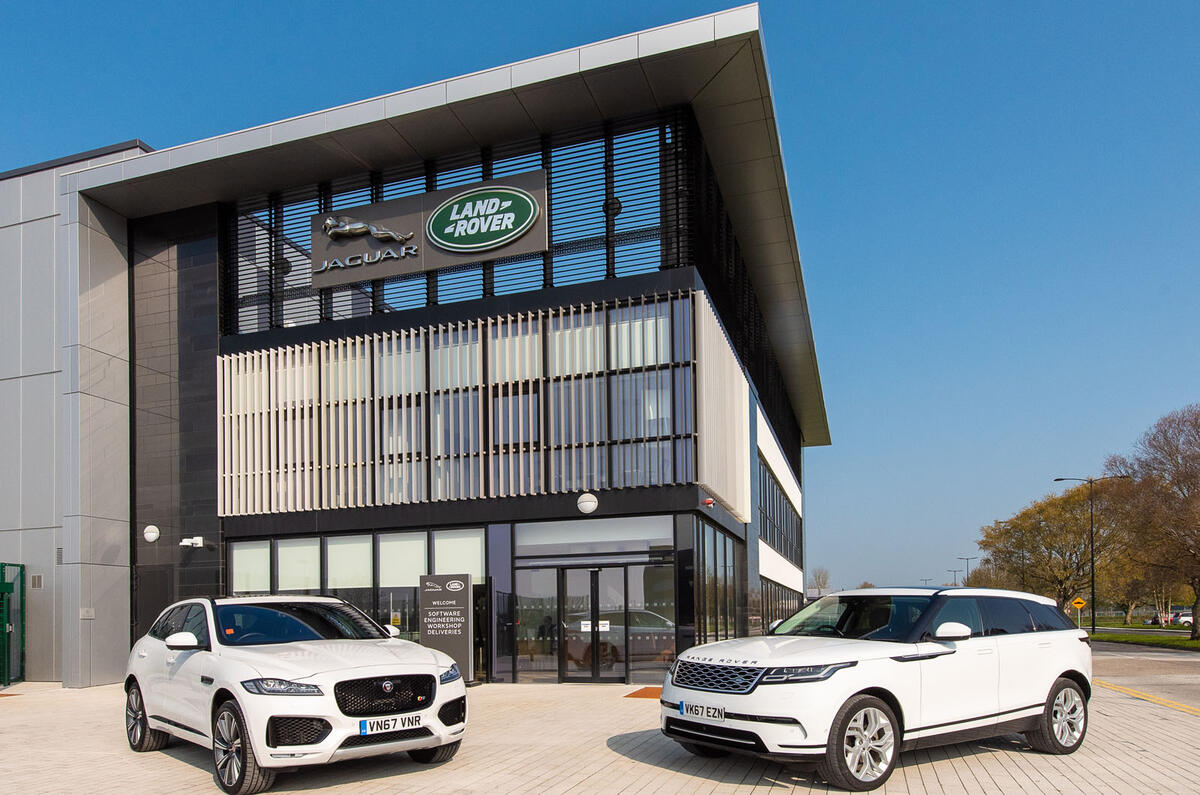Jaguar Land Rover has recorded an annual loss of £3.6 billion, but chief executive Ralf Speth says an ongoing cost-saving programme will transform it into a “leaner and fitter” company for the future.
The pre-tax loss for the financial year that ended in March reflected a £3.1 billion write-down of the value of the business in the final quarter of last year, but also showed the ongoing impact of falling sales in China and continued uncertainty over Brexit. The firm’s annual revenue of £24.2 billion was down £1.2 billion year on year.
Without the one-off write-down, Jaguar Land Rover's annual pre-tax loss was £358 million. While annnual sales increased by 8.4% in the UK and 8.1% in North America, the sharp decline in China meant that its overall sales of 578,915 vehicles was a year-on-year decline of 5.8%.
Jaguar Land Rover did post a £269 million pre-tax profit in the final quarter of the financial year covering January-March 2019, although this was reduced to £120 million after redundancy costs, part of its ongoing transformation programme, were taken into account. The firm noted that it retained £3.8 billion of cash.
Speth said that restructuring programme has already resulted in £1.25 billion of efficiencies, and made the firm “one of the first companies in its sector to address the multiple headwinds simultaneously sweeping the automotive industry”.
He added: “We are taking concerted action to reduce complexity and to transform our business through cost and cash flow improvements.
“Jaguar Land Rover is focused on the future as we overcome the structural and cyclical issues that impacted our results in the past financial year. We will go forward as a transformed company that is leaner and fitter, building on the sustained investment of recent years in new products and the autonomous, connected, electric and shared technologies that will drive future demand.”
The financial results come amid ongoing speculation that Jaguar Land Rover's owners, Tata Motors, are considering selling the firm to the PSA Group.
In a conference call, Tata's financial chief, PB Balaji, again denied it was considering selling Jaguar Land Rover, telling reporters "there is no truth to these rumours. We do not comment on speculation."
Read more
Analysis: why Jaguar Land Rover faces tough times (from March 2019)
Jaguar Land Rover boss plays down PSA sale report - but doesn't deny it
Analysis: why Jaguar Land Rover lost £3.4bn (from Februrary 2019)
Opinion: can the new Defender help turn around Jaguar Land Rover?








Join the debate
Add your comment
DANIBUC
Actually, to be pedantic, they did have an auto Defender (a V8 nonetheless)...but it was back in 1998...over 30 years ago! I agree with all your points. It would have been nice to see Jaguar do a supercar. God knows they had enough concept goes at it.
I think their problem is that
I think their problem is that for some models, they do not have a wow factor variant. They also do not have for the every day person like they use to have with the Defender (they took too long to update btw and include an automatic in the setup) and what the Disco and Freelander were (Benz has every day working vehicles alongside their luxury lineup). Why has the Disco lost its tailgate and why has it go so expensive with no everyday people variant? There vehicles aren't reliable, nor practical enough and there are technological features missing on it that competitors do have. Where are the performance variance too to beat the Germans instead of just be just fast enough? Why did Jag just give up on their supercar? (look at Mclaren) Toyota beats LR when it comes to SUVs in the developing world for a reason, G wagon beats the Vogue in LA for a reason, the Germans beats them on their own home turf of Britain in sales for a reason.
Their line up needs to be properly diversed, competitive when it comes to technology/performance/everyday usability/reliability and practicality.
I think their problem is that
I think their problem is that for some models, they do not have a wow factor variant. They also do not have for the every day person like they use to have with the Defender (they took too long to update btw and include an automatic in the setup) and what the Disco and Freelander were (Benz has every day working vehicles alongside their luxury lineup). Why has the Disco lost its tailgate and why has it go so expensive with no everyday people variant? There vehicles aren't reliable, nor practical enough and there are technological features missing on it that competitors do have. Where are the performance variance too to beat the Germans instead of just be just fast enough? Why did Jag just give up on their supercar? (look at Mclaren) Toyota beats LR when it comes to SUVs in the developing world for a reason, G wagon beats the Vogue in LA for a reason, the Germans beats them on their own home turf of Britain in sales for a reason.
Their line up needs to be properly diversed, competitive when it comes to technology/performance/everyday usability/reliability and practicality.